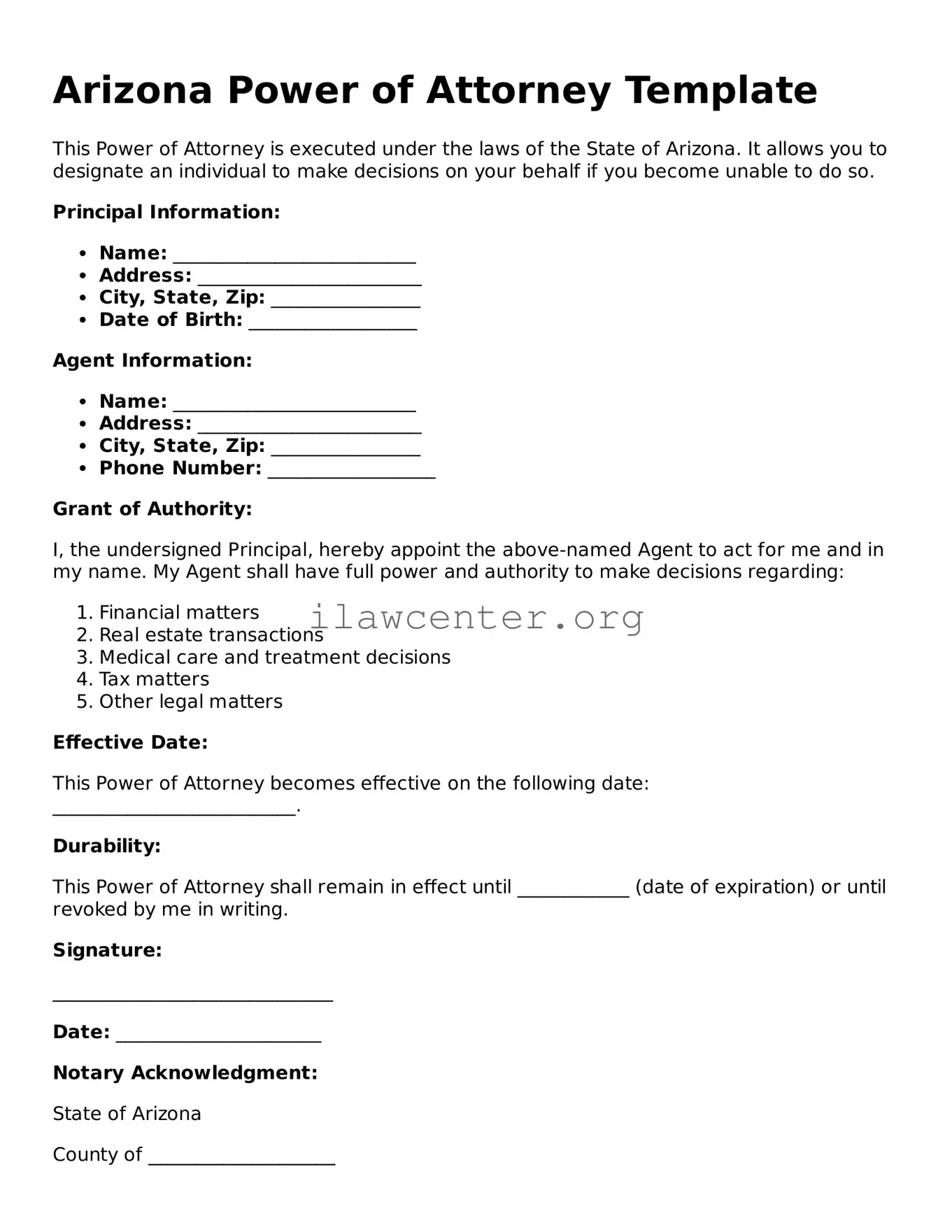Instructions on Utilizing Arizona Power of Attorney
Once you have the Arizona Power of Attorney form in front of you, it’s time to fill it out. This document is important, as it allows someone you trust to make decisions on your behalf. Before you begin, make sure you have a clear understanding of your wishes and have chosen a person who will represent your best interests.
- Start by clearly writing your name and address at the top of the form. This identifies you as the principal.
- Next, write the name and address of the person you are designating as your agent. This individual will act on your behalf.
- Clearly define the powers you want to grant. This could range from handling financial matters to making medical decisions. Specify each power if needed.
- Include any limitations you want to impose on your agent’s authority. If there are actions your agent should not take, make sure to list them explicitly.
- Determine the duration of the Power of Attorney. You can choose a specific time frame or state that it remains effective until revoked.
- Sign the form in the designated area, and make sure to date it as well. Your signature confirms that you are giving this authority willingly.
- Have your signature acknowledged by a notary public. This step is essential to ensure the document is legally valid.
- Lastly, provide copies to your agent and any relevant institutions, such as banks or healthcare providers, so they are aware of your agent's authority.
After you have completed the form, review it carefully to ensure accuracy. It may also be wise to consult with a legal professional, especially if you have any concerns about the powers you are granting or the best way to structure your Power of Attorney. This precaution helps ensure everything aligns with your intentions.
